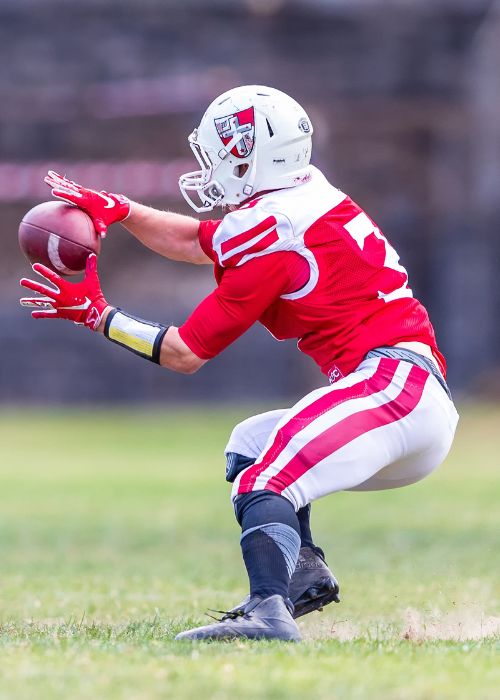Concussion Specialist
It is important to see a physician with specialty training in concussion management if you suspect a concussion may have occurred.
Dr. Harary specializes in the evaluation and management of sport-related concussions. He is part of St. Charles ThinkSMART! ™ Concussion Management Program which provides concussion care to over 45 school districts in Suffolk County as well as several sports leagues. State of the art diagnostic and treatment modalities are used to help patients return safely back to school and sport once it is safe to do so.
What is a Concussion?
Concussions are functional disturbances in brain function that can occur with a hit to the head or whiplash-type movement of the head. These injuries are not seen on conventional imaging such as x-rays, CT scans or MRIs. If a concussion is suspected, a detailed evaluation is needed to diagnose the injury and determine the best treatment plan.
What are the Symptoms?
Each concussion presents differently. Signs and symptoms may develop immediately or anytime within a few days of the injury. Not every person develops the same symptoms.
- Headache
- Dizziness
- Nausea
- Light or noise sensitivity
- Sleep disturbances
- Difficulty concentrating
- Mood changes
- Fatigue
- Visual disturbances
Concussion FAQs
If a concussion is suspected, the best thing to do is to remove yourself, or the child, from play immediately until they can be evaluated by a medical professional. As the saying goes “When in doubt, sit them out!”
According to the CDC, an estimated 1.6 to 3.8 million sports-related concussions occur each year. However, this number is likely higher because of concussions that do not get reported.
Yes! Only about 10% of concussions result in loss of consciousness. That means 90% of concussions do not.
Continuing to play despite suffering a concussion can be very dangerous! Athletes are at risk for developing Second Impact Syndrome (SIS) if they sustain a second head injury before the first one has a chance to heal. SIS can lead to brain swelling, long-term or permanent brain damage, and sometimes death. Even if you don’t sustain a second injury, continuing to play with a concussion makes you 7-10 times more likely to take a month or longer to recover.
The best and safest way to return to the field as soon as possible is to report your symptoms immediately and begin treatment.
Concussions do not show up on imaging tests such as CT or MRI and are therefore not typically necessary to obtain. CT scans are ordered if there is concern for a brain bleed or fracture immediately after the injury. MRI is typically ordered when symptoms are worsening or not improving over time, to look for underlying problems that may or may not be associated with the concussion.
Each concussion is treated individually based on how a patient presents. However, nobody should ever return to sport while experiencing concussion symptoms!
Relative Rest – both physical and cognitive rest. This includes physical activity restrictions as well as school or work accommodations. Light walking is typically recommended daily if it doesn’t worsen symptoms.
Medications – Prescription medications are sometimes, but not usually needed to manage symptoms of a concussion. It may be recommended that patients start over the counter supplements, such as omega 3 or melatonin. These are generally safe and may help symptoms. Over the counter medications such as Motrin or Tylenol are sometimes taken occasionally to help with headaches as well. Do not start any medication or supplement regimen without speaking to your physician first.
The first step is to be symptom-free at rest and while performing daily activities, including school and work. At that point, your doctor will decide if you are ready to begin a return-to-play protocol. This involves gradually increasing the type and intensity of physical activity through the course of different exercise stages (usually 4 or 5 stages) to ensure that symptoms do not return with exertion. At that point, your doctor may clear you to return to sports.
Return-to-play protocols are a critical part of the concussion treatment protocol. Sometimes, patients may feel better because they are simply not doing the level of activity that provokes symptoms. If that is the case, your doctor needs to know this before you return to the field.
Each concussion is different, so it is impossible to put a number on how many concussions someone can get before they should stop playing sports. If you are experiencing chronic symptoms such as headaches, dizziness, or difficulty focusing/concentrating, then it is probably not safe to return to a contact sport. However, it is also important to maintain a healthy, physically active lifestyle. If it is not safe to return to contact sports, it may be safe to participate in other non-contact sports. It is important to seek medical advice from a concussion specialist when dealing with these questions. They can help guide you to make the right decision.
Call our office at 631-689-6698 ext 2204 to make an appointment
Our Treatment Approach
Baseline Testing
State of the Art Treatment
Coordination of Care
Our proven treatment approach is designed to help patients return safely back to school and sports once it is safe to do so. Your health and safety are our number one priority.
